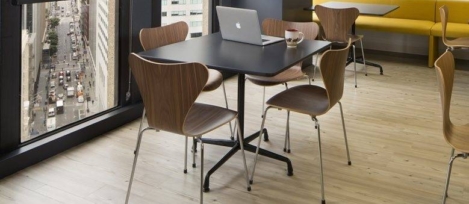March 31, 2017
America’s corporate occupiers streamline portfolios due to economic uncertainty 0

While talent continues to reign supreme on the list of top concerns for US companies a growing number of respondents to CBRE’s annual Americas Occupier Survey cited economic uncertainty as a top challenge, up from 36 percent in 2016 to 52 percent. As a result, 87 percent of corporate occupiers report that they are managing to this uncertainty by disposing of surplus space and/or implementing more efficient workplace designs to prepare their portfolios for the future. Only 26 percent of respondents expect to expand their portfolios over the next two years, down from 38 percent in the 2016 survey. Approximately one-half of the 2017 survey’s respondents indicated that the size of their portfolios would remain stable with 2016 levels. However, while uncertainty is driving many real estate decisions, creating a workplace experience focused on talent remains top of mind for the majority of occupiers surveyed.



































February 13, 2017
Neuroscience can function as a management tool for personal development 0
by Mike James • Comment, Workplace
(more…)